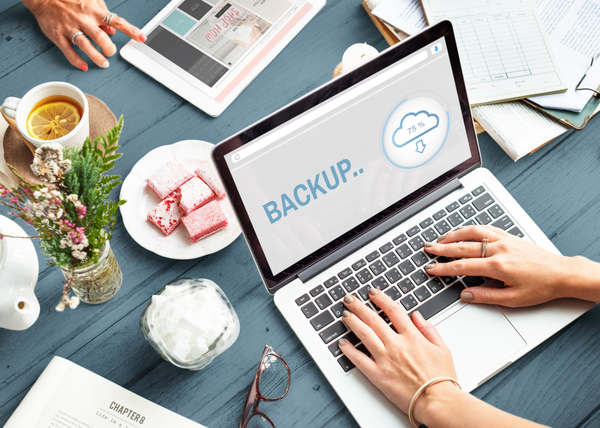Notifications
ALL BUSINESS
COMIDA
DIRECTORIES
ENTERTAINMENT
FINER THINGS
HEALTH
MARKETPLACE
MEMBER's ONLY
MONEY MATTER$
MOTIVATIONAL
NEWS & WEATHER
TECHNOLOGIA
TV NETWORKS
VIDEOS
VOTE USA 2026/2028
INVESTOR RELATIONS
COMING 2026 / 2027
ALL BUSINESS
COMIDA
DIRECTORIES
ENTERTAINMENT
FINER THINGS
HEALTH
MARKETPLACE
MEMBER's ONLY
MONEY MATTER$
MOTIVATIONAL
NEWS & WEATHER
TECHNOLOGIA
TV NETWORKS
VIDEOS
VOTE USA 2026/2028
INVESTOR RELATIONS
COMING 2026 / 2027
About Me
 Snigdha Pawar
Snigdha Pawar As an enthusiast for network security, I am diligently learning and implementing strategies to defend against cyber threats.
 Snigdha Pawar -
August 30, 2024 -
Technology -
managed backup services
backup disaster recovery solutions
backup and disaster recovery solutions
managed backup provider
-
448 views -
0 Comments -
0 Likes -
0 Reviews
Snigdha Pawar -
August 30, 2024 -
Technology -
managed backup services
backup disaster recovery solutions
backup and disaster recovery solutions
managed backup provider
-
448 views -
0 Comments -
0 Likes -
0 Reviews

Small businesses rely more on data than ever in an increasingly digital landscape. This digital dependency is critical to daily functions and long-term success, whether customer information, financial records, or operational data.
However, this reliance also comes with significant risks. Data loss or extended downtime can cripple operations, leading to lost revenue, damaged reputation, and costly recovery efforts.
To mitigate these risks, small businesses must prioritize robust backup and disaster recovery (BDR) solutions, ensuring they are well-equipped to handle unforeseen disruptions and maintain business continuity.
Current Trends in Backup and Disaster Recovery
Shift to Cloud-Based BDR Solutions
Small businesses increasingly adopt cloud-based backup disaster recovery solutions due to their flexibility and cost-efficiency. Cloud-based systems offer scalable storage and automated backups, reducing upfront costs and allowing for rapid data restoration.
Recent reports show that over 60% of small businesses now use cloud-based managed backup services, reflecting this growing preference.
Integration of AI and Automation
AI and automation enhance backup processes by automating routine tasks and improving recovery times. AI-driven backup disaster recovery solutions can predict failures, prioritize critical data, and reduce downtime by up to 50%. These innovations make managed backup services more efficient and reliable.
Increased Focus on Ransomware Protection
With the rise in ransomware attacks targeting small businesses, there is a stronger emphasis on integrating ransomware protection into backup disaster recovery solutions. Features like immutable backups and rapid restoration are now standard in managed backup services, with nearly 70% of small businesses adopting these protective measures to safeguard their data.
Top Backup and Disaster Recovery Solutions for Small Businesses
Cloud Backup Services
Key Providers
Cloud backup services have become essential for small businesses seeking reliable backup and disaster recovery solutions. Leading managed backup providers like Backblaze, Carbonite, and Acronis offer comprehensive cloud-based options tailored to the needs of small enterprises. These providers are known for their user-friendly platforms, strong security measures, and seamless integration with existing IT systems.
Features & Benefits
Cloud backup services provide significant advantages, particularly in scalability and automation. Small businesses can quickly scale their storage needs without investing in expensive hardware. Automated backups ensure that data is continuously protected without manual intervention, decreasing the risk of human error. Additionally, cloud solutions offer robust disaster recovery options, enabling quick data restoration and minimizing downtime in the event of an unexpected incident.
Hybrid Backup Solutions
Key Providers
Leading managed backup services providers in the hybrid space include Datto, Veeam, and Unitrends. These companies offer solutions that effectively blend on-premises and cloud backups, catering to small businesses' diverse needs. Their platforms are designed to deliver seamless data protection, easy management, and efficient disaster recovery.
Advantages
The hybrid backup approach provides significant benefits, including data redundancy and faster recovery times. By maintaining local backups, businesses can quickly restore data during a system failure.
In contrast, cloud-based backups ensure data is safe from physical damage or catastrophic events. This dual-layer protection minimizes downtime and enhances overall data security, offering a more resilient backup strategy.
Disaster Recovery as a Service (DRaaS)
Key Providers:
Several leading providers offer robust DRaaS solutions, including Zerto, IBM Cloud, and Microsoft Azure Site Recovery. These providers deliver cloud-based disaster recovery services that integrate seamlessly with existing IT environments. Their solutions offer a range of features designed to enhance data protection and minimize downtime.
Features:
DRaaS solutions come with several key features that are beneficial for small businesses:
Factors to Consider When Choosing a BDR Solution
Cost vs. Value
When selecting a backup and disaster recovery (BDR) solution, small businesses must carefully weigh the cost against the value provided. They must also consider the first investment, the long-term benefits, and cost savings similar to the solution.
Detailed Analysis:
To evaluate the cost versus value of BDR solutions, small businesses should assess several key factors:
Ease of Use
User Experience:
A user-friendly interface and straightforward management are important for effective implementation.
Features like an intuitive dashboard, simple configuration, and easy navigation enhance usability.
Simplifies backup and recovery processes, reducing the need for extensive training.
Customer Reviews:
High ratings often highlight ease of use as a critical benefit.
Positive feedback commonly mentions the simplicity of setup and integration.
Solutions like Backblaze and Carbonite are praised for their user-friendly features, contributing to operational efficiency.
Compliance and Security
Regulatory Requirements:
Industry Regulations: Ensuring compliance with GDPR and HIPAA is crucial for avoiding legal penalties and protecting sensitive data.
Data Protection: BDR solutions must meet these standards to ensure data privacy and security, particularly for businesses handling personal or health-related information.
Security Features:
Encryption protects data at rest and during transmission, ensuring unauthorized users cannot access sensitive information.
Multi-factor authentication (MFA) adds an extra layer of security by requiring additional verification steps beyond passwords.
Secure Data Centers: These centers ensure stored data's physical and digital security, including robust access controls and disaster-proof facilities.
The Future of Backup and Disaster Recovery for Small Businesses
AI & Machine Learning
Blockchain for Data Integrity
Summary
In today’s digital age, robust backup and disaster recovery (BDR) solutions are crucial for small businesses to protect their data and ensure continuity. With evolving technologies like AI, machine learning, and blockchain enhancing data protection, choosing the right BDR solution is essential.
Balancing cost with value, ensuring ease of use, and meeting compliance and security standards are critical factors in safeguarding your business against disruptions. Small businesses can secure their data and support long-term success by staying updated on trends and making informed decisions.
